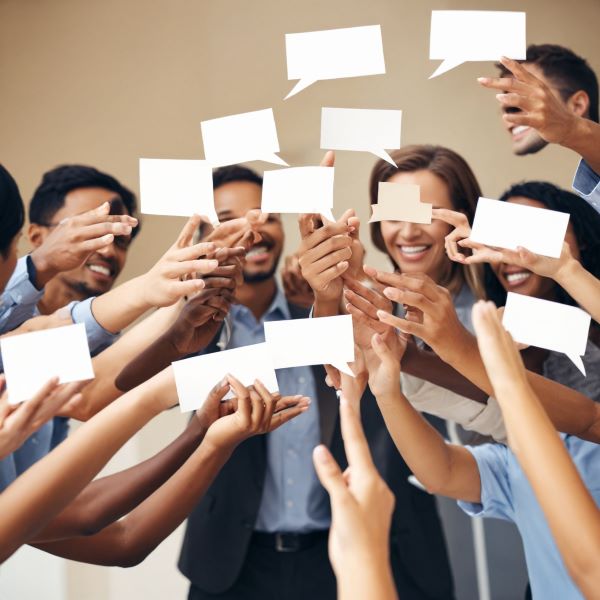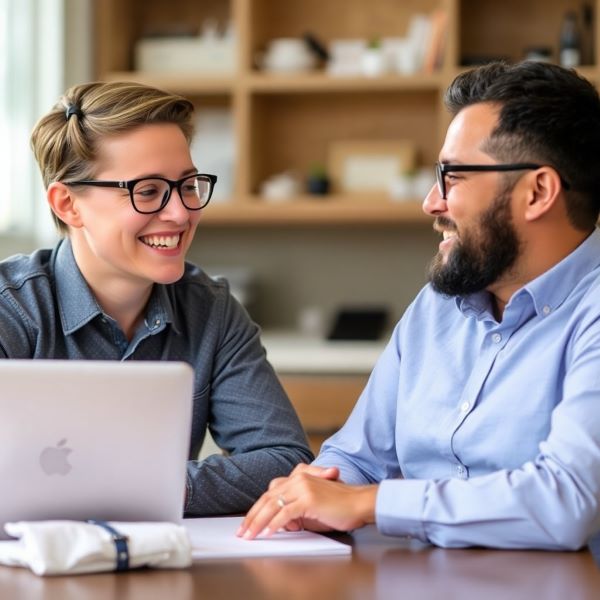Introduction
One cannot under emphasize the role of communication in our day to day social life. Whenever we express ourselves at work, communicate with family about how we feel or simply move around in society, everything depends on our communication and the way we are seen by other people through it, which determines our link with surrounding world. Notwithstanding this fact, many individuals take communication for granted; and such like people including me have developed certain habits that may not be very helpful.
From what I have experienced, you need to be patient enough and ready to improve every day to learn how you can make sense out of your words and put them into proper communication so as to become a better communicator. As time went by, I was able to realize the great impact brought about by effective interaction. This is because information does not only convey messages but also links people and helps them understand each other better.
In my blog, I will discuss some tips that improved my interpersonal skills such as listening well and resolving conflicts gracefully.
Table of Contents
Understanding the Basics of Communication
At the start of my journey to enhance my communication skills, I thought that success depended on my speaking abilities. As I delved deeper, however, I came to understand that communication goes beyond words and is comprised of many different elements. One must take into account not only spoken or written messages but some other signals as well like tone, body language, timing, etc., while communicating.
In trying to learn more about communication, for example through a chat in given circumstances like “I’m fine”, one begins to see how incomprehensibly jumbled up certain things are? One day I was reflecting on my interaction and it occurred to me why at times I speak something different from my tone or the way that I move. From this point on, I understood that one can only communicate effectively if he is aware of his own behavior as well as takes into account every detail around him. The process of knowing or realizing something is known as awareness; which helps in recognizing ones weakest points so that they could be strengthened for better conversation having sense and relevance.

The Power of Active Listening
Listening was once upon a time something that I considered as not playing an active role in a conversation. It was my time to switch off and relax while waiting for the other person to speak his or her mind. Nonetheless, I have realized that communication cannot be effective without active listening. This is keeping fully occupied with the words spoken by others, understanding, being sympathetic and reacting appropriately. Trust and rapport grow stronger when individuals are listened to genuinely.
In the beginning, I found it hard to practice active listening. I had to purposely make myself not think about what I would say back while listening to others speak. Instead, I paid attention to them verbally, looked at their eyes and employed positive body languages such as nodding. At times, I would repeat their words in order to see if I got them right. By changing how I approached this matter, everything changed about my talks. People started revealing more information than before, and it made me realize that there was a real difference between being somewhere in body only and actually being present emotionally as well.
Clarity Is Key
It can be very annoying not understanding a word or being misunderstood after talking with someone. I always imagined that I had communicated effectively, but it would turn out later that my point was not taken correctly. Since then, I have been considering clarity – both the message and the manner of communication.
By clarity, I mean getting your thoughts together, speaking plainly and to the point. For me, it is easier to understand what I mean when I give out examples or analogies in relation to these difficult subjects. In such cases, I also seek to know whether or not the other party has followed me through asking questions or posing statements. As time went by, I came to realize that focusing on clarity minimized misinterpretations while enhancing the overall efficacy and potency of my messages; whether they related to some complex issue at work which had to be explained or were just normal talks with close people about something important and personal.
Nonverbal Communication Speaks Volumes
There was this one experience when I was told, “It’s not what you said—it’s how you said it.” This occurrence had a great impact on me since I was able to understand that communication goes beyond speech. There is a big chunk of nonverbal communication like facial expression, gestures and tone which we use to pass information from one person to another. First of all, it is possible to note from scientific literature that nonverbal communication forms an important part of human interaction. In other words, even if we select the most appropriate words for communication, but our postures contradict them, then they will be meaningless.
I took some measures in order to communicate without using words by monitoring my postures, smiles and signs. To take an example when chatting with someone I would consciously adopt a posture that showed I was all ears such as uncrossing my arms and slightly leaning forward. Secondly, I paid close attention to the nonverbal signals of the others around me, which enabled me to make sense out of their emotional states better. Having gained control over such kind of communication, now I am able to notice every little detail during conversation and interaction with others around me; thus being able to establish close relationship with every individual that crosses my way.

Empathy: The Heart of Connection
Empathy is very important for effective communication. Without it, one may speak well, but not reach out. In the past, I always thought about expressing my opinion and neglecting the need to see things from other individuals’ points of view. However, when I began giving priority to empathy, I experienced better interaction characterized by positivity and progress.
To practice empathy, I sometimes simply put myself in the other person’s shoes. For instance, if someone tells me about a problem or feeling, I make an effort to imagine what I would feel like if I were in such situations. Besides these tricks of empathy, I also let them know that “It must be tough”, “You have every reason to think so”. Such minimal forms of recognition promote a feeling of security and confidence that facilitates sincere communication. By showing that one really cares, empathy serves as a means of enhancing not only communication but also relations among people.
Managing Conflict with Grace
I used to hate any form of conflict. In such cases, I would have either completely kept off the trouble or taken an offensive standpoint, both options being unproductive. As time passed, I discovered that conflict per se is not good or bad, but what matters is our reaction towards it. Nowadays, handling differences in a polite way is one of my best communication skills.
One should try and solve the matter at hand rather than blame others for it. For example, saying “I felt hurt when…” is better than “You always…” The first option makes people less defensive while ensuring that they stay on course throughout the conversation. It is also important to remain composed and give a listening ear to other people’s views. These approaches have not only assisted me in dealing with conflicts more efficiently but also proven that I uphold mutual respect and comprehension in my relations.
The Role of Feedback
It was very difficult to give or receive comments in the past just as if one was walking on a tight rope. The truth is that I always had two conflicting concerns. First, there was this issue on how to give feedback without hurting other people. Second, there were times when I could not take criticism objectively without feeling bad about it. Nevertheless, I now consider feedback very important because through this we can grow and develop with other individuals too.
My approach during giving feedback is such that I present it as a way of making things better and not necessarily a negative comment. To explain, instead of telling someone that they are doing something wrong, I would rather say that “here is an idea which may improve the effectiveness of this activity”. In receiving any form of feedback, I keep in mind that it is not aimed at me as a person but an opportunity for me to understand more and improve myself.
Such like strategies as asking for possible clarifications or thanking for given opinions have also been of importance to me. This is because now I am able to make use of feedback in enhancing my communication; something that has also promoted teamwork characterized by mutual regard and continued self-enhancement.

Practicing Assertiveness
Communication had been a big issue for me because I could not figure out how to communicate; I did not know if to be aggressive or just allow things to go by. There were times when I would fail to talk about what was important for me with the hope of maintaining tranquility, while at other times coming out too harshly immediately I did so. This has been possible through the learning process of being assertive that involved having courage in expressing what goes in my mind without ignoring other peoples’ opinions.
It does not matter whether one is aggressive; he should only know how he can support his point in a good manner without insulting others. To do this, I make sure that my communication is plain and problem-focused. For instance, when working on a project and require additional time, I might say “Kindly allow me extend the deadline so that I give you quality work?” instead of just saying “I am sorry but I cannot make it before the time is up.” Through being assertive, I have managed to improve my communication and therefore enhance trust and understanding among different people that I relate with.
Conclusion
You do not have to be perfect all the time but should try and create relationships that are based on trust and comprehension with other individuals. Everything we do towards becoming better listeners or improving our communication by resolving conflicts serves to improve our relationships as well as make our life better.
Personally, I have found the process of learning how to communicate better very enriching. This is because it has allowed me to move closer to those individuals who matter most in my life while also gaining access into new worlds. The experience has taught me one important lesson – communication goes beyond words; it involves establishing relevant links. I implore you to take up this challenge and experience firsthand the incredible transformation brought about by efficient communication techniques like never before!
FAQs
Q1: Why do people need to communicate effectively on a daily basis?
A1: It is possible to strengthen relationships, resolve conflicts better and speak our minds openly through effective communication. It also increases team work at work places and makes social interactions more intense.
Q2: What does it take for me to be an improved listener?
A2: Commence this process by wholly concentrating on the speaker – keep aside anything else that may distract you and concentrate on what they are saying. Indicate that you are listening through nodding, summarizing, or posing relevant queries. Be patient and avoid interrupting or prematurely planning your reply.
Q3: Is there any relevance of empathy in communication?
A3: Empathy promotes insight and closeness. When one wears the shoes of another person, he or she communicates that their views matter thereby fostering free interaction environment.
Q4: How can I handle conflicts without damaging relationships?
A4: Deal with conflicts calmly and while focusing on solutions. Express how you feel using “I” statements without blaming anyone, then take time to hear their side too. To deal with conflicts well, it is important to identify and agree on some level of common ground.


